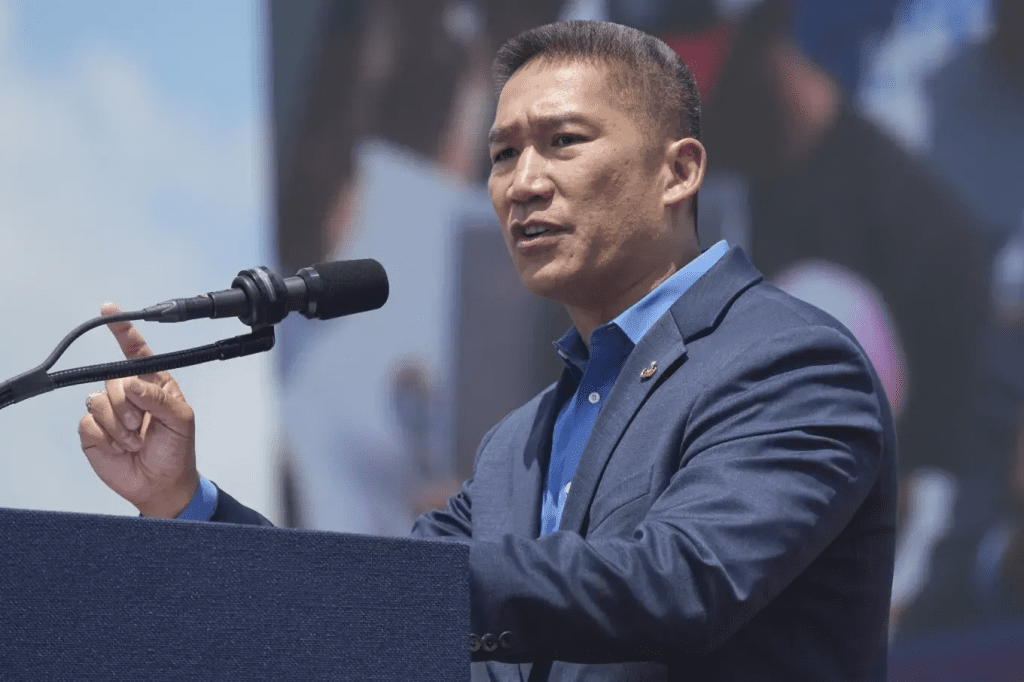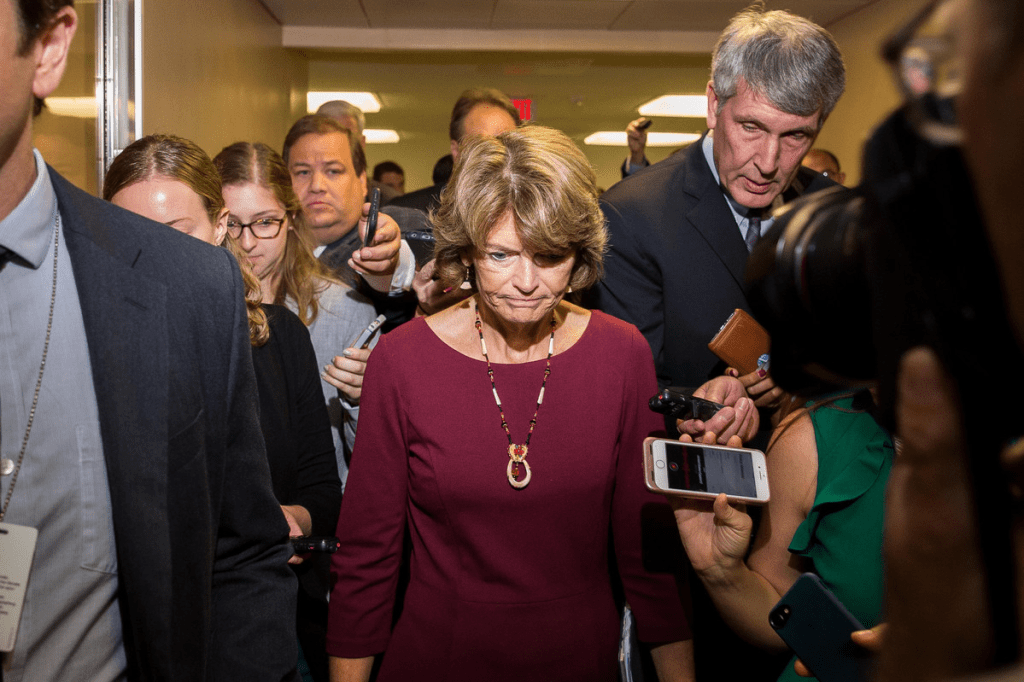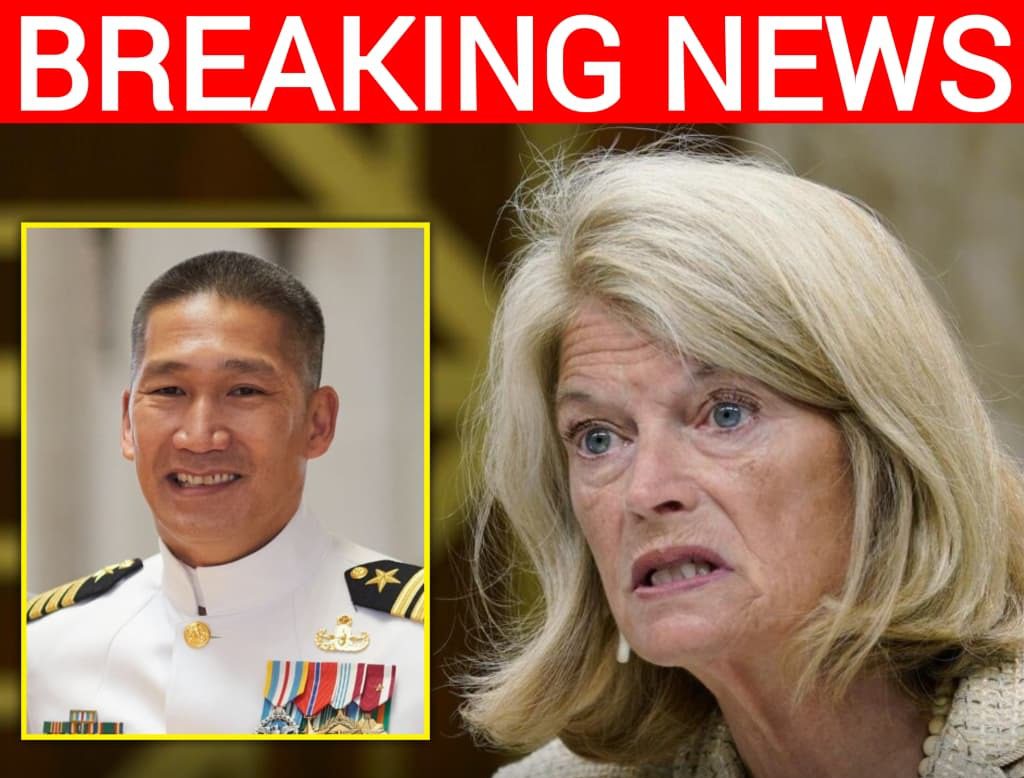Senator Lisa Murkowski Stuns Republicans as Lone GOP “No” Vote on Hung Cao’s Navy Nomination, Exposing Party Divide
The confirmation of Hung Cao as Under Secretary of the U.S. Navy should have been a moment of unity for Republicans. Cao, a decorated Navy veteran and a loyal Trump ally, won Senate approval on October 1, 2025, with a 52 to 45 vote. Yet what stood out most was not his confirmation itself but the fact that Senator Lisa Murkowski of Alaska was the only Republican to break ranks and vote no. Her decision set off a storm of criticism from conservatives, who once again accused her of abandoning the party line and labeled her a “RINO,” a Republican in name only.

For those who have followed Murkowski’s career, the move was not exactly surprising. She has long built a reputation as one of the most independent voices in the Senate, willing to buck her party on major issues even if it costs her politically. Her past votes tell the story. She famously opposed Brett Kavanaugh’s Supreme Court confirmation in 2018, supported abortion rights legislation in 2022, and has occasionally sided with Democrats on energy and climate measures that put her at odds with GOP leadership. In Alaska, a state with a strong independent streak, these choices have not ended her career but have instead made her one of the few Republicans able to draw support from both moderates and Democrats in general elections.

Still, her “no” vote on Hung Cao carries symbolic weight. Cao’s background as a veteran and his alignment with Trump’s defense and foreign policy priorities made him a nominee Republicans expected to rally behind unanimously. For Murkowski to be the only defector highlighted the persistent fault lines within the party, where moderates and Trump-aligned conservatives continue to view policy and loyalty through different lenses. While nearly every other Republican senator saw Cao’s confirmation as an easy decision, Murkowski clearly calculated it differently, perhaps reflecting concerns about either his policy positions, the process of his nomination, or her own effort to distance herself from Trump’s influence.

The reaction was swift. Conservative commentators and party activists blasted her as disloyal, repeating the long-standing frustration that Murkowski often gives Democrats a key vote when margins are tight. For her critics, this was just another chapter in a history of defiance that they believe weakens the GOP’s leverage in Washington. Yet for her supporters, both in Alaska and nationally, the vote underscored her consistency in putting independence above party pressure, something her base has come to expect even when they don’t agree with her choices.

The final tally of 52 to 45 confirmed that Murkowski’s opposition did not derail Hung Cao’s path to office. Democrats split on the nomination, but with Republicans overwhelmingly unified, Cao crossed the finish line without difficulty. That reality softens the practical impact of Murkowski’s vote while sharpening the symbolic message it sent: that she remains committed to walking her own path, even if she stands alone.
Hung Cao’s confirmation marks another victory for Trump’s influence on the military and defense establishment, showing that his nominees can clear the Senate with broad GOP support. But Murkowski’s defection is a reminder that the Republican Party is not fully monolithic. In a chamber often dominated by partisan lockstep, her willingness to stand apart keeps alive the narrative that some senators still approach their role with a measure of independence, even if it comes with heavy criticism.
As the dust settles, the story is less about whether Hung Cao will serve — his confirmation is secure — and more about what Lisa Murkowski’s vote says about her place in today’s Republican Party. Once again, she has made it clear she is not afraid of being the outlier. Whether that strengthens her long-term or puts her further on the edge of the party’s base is a question only time, and Alaska’s voters, will answer.



